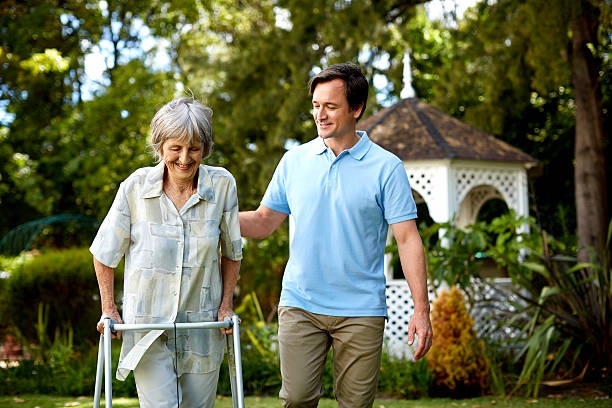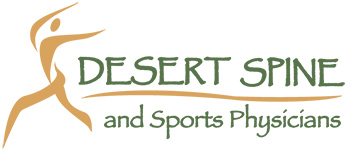
The Effects of Aging on Balance
What is balance?
We rely on balance constantly as we perform our daily routines and activities. When our balance is diminished, it can have a significant impact on our ability to walk, socialize, and function in day-to-day life.
Many different parts of our body systems work together to achieve proper balance. The brain, eyes, inner ears (vestibular system), spinal cord, peripheral nerves, cardiovascular system, muscles, and joints are all necessary to maintain proper balance and help keep ourselves upright.
Sensory input from each of these structures is processed by our brain which then facilitates motor responses to maintain proper balance whether we are standing, walking, or performing other tasks. When one or more of these body systems are not working properly, poor balance, or an inability to maintain ourselves upright and coordinate other positional movements, can result.
Why does balance decline with age?
Older adults can be particularly impacted by poor balance, with one study finding that one in five persons over the age of 65 experiences balance issues on an annual basis.1
Numerous aspects of our health can play a role in the deterioration of balance with aging. There can be loss of muscle strength and function with age which can in turn affect balance. Muscular strength can be particularly affected in those with a sedentary lifestyle. Joints can degenerate with time, developing arthritis which can result in pain and difficulty with movement.
The body’s nervous system also plays a vital role in balance. The spinal cord and nerve roots can be irritated or damaged by degenerative changes in the spine, causing weakness or sensory disturbances in the limbs, and therefore poor balance.2
Diagnoses that affect balance
Common diagnoses affecting these structures include spinal stenosis and radiculopathy, and a more severe form of spinal cord damage called myelopathy. In addition, if the peripheral nerves are affected, such as with peripheral neuropathy, this can limit sensory input and proprioception, the ability to spatially detect the position of our limbs as we stand, walk, and perform other activities.
Finally, the brain can change with age, with one study showing that vital processes within the brain naturally tend to slow down with age which can affect balance.3 The brain can also be impacted by stroke and other neurologic disorders which affect the functioning of sensory processing and motor control needed to maintain balance.
In addition to the body’s musculoskeletal and nervous systems, aging can also affect other body systems. With aging often comes degenerative changes of the eyes, limiting the body’s sensory input through proper vision which can play a vital role in maintaining proper balance. Age-related changes in the vestibular system (a maze-like structure within the inner ear) which detects changes in head position, eye motion, and musculoskeletal coordination can also affect balance.
Older adults also more commonly have diseases affecting the cardiovascular system which can negatively affect balance, such as blood pressure abnormalities, peripheral vascular disease and lower extremity swelling. Side effects from medication use and alcohol intake may also affect balance at any age but particularly in those over the age of 65.
How is balance evaluated?
Balance can be evaluated by a qualified medical provider such as a primary care provider, specialist, or physical therapist. A medical evaluation may include an assessment of brain, eye, cardiovascular, vestibular, spine, peripheral nerve, and musculoskeletal health and function.
In addition, a careful review of medications to look for possible causes of poor balance is important. A physiatrist or PM&R specialist typically performs a comprehensive neurological and musculoskeletal evaluation of gait, muscle strength, sensation, proprioception, joint range of motion, and special tests for balance.
If there is spinal pain, a thorough examination of the neck and low back is also necessary to help pinpoint a diagnosis that can affect balance.
What can be done to improve balance?
Interestingly, a study found that the inability to stand on one leg for 10 seconds in mid to later life is linked to a near doubling in the risk of death from any cause within the next 10 years.4 Therefore, everyone should want to improve their balance!
One of the most important ways to improve balance is to maintain good musculoskeletal health by keeping a healthy weight, staying active with exercise, and promoting other positive lifestyle changes. Simply challenging balance on a daily basis, like standing on one leg at the bathroom or kitchen sink, goes a long way to help improve balance overall.
Finally, physical therapy can improve balance through optimizing strength, mobility, and flexibility which can reduce fall risk.5 After physical therapy, continuing to perform a regular home exercise program and staying active with activities like walking or Tai-Chi can be helpful to maintain balance.6
It is important to have regular follow-ups with a primary care provider to maintain overall health, as numerous body systems can play a role in good balance.
Schedule an appointment today!
If you are interested in knowing more about balance, please contact us at Desert Spine and Sports Physicians. We offer appointments and in-office procedures at all of our Phoenix, Scottsdale, and Mesa locations. We look forward to helping all of our patients improve their function and their balance.
References:
- https://pubmed.ncbi.nlm.nih.gov/22645067/
- https://www.ncbi.nlm.nih.gov/pmc/articles/PMC7349042/
- https://www.networks.nhs.uk/nhs-networks/tai-chi-for-health-and-rehabilitation-london-uk/documents/file.2019-06-10.5134964040
- https://www.bmj.com/company/newsroom/inability-to-stand-on-one-leg-for-10-seconds-in-mid-to-later-life-linked-to-near-doubling-in-risk-of-death/
- https://www.choosept.com/guide/physical-therapy-guide-balance-problems
- https://www.stelizabeth.com/medical-services/spine-care/your-lower-back/low-back-pain-and-balance
